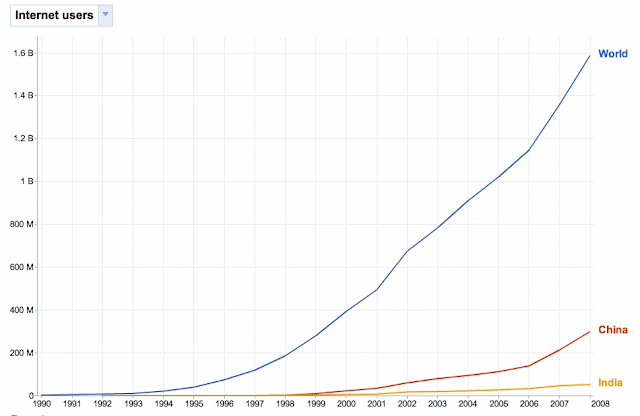Saturday, 9 June 2012
Tuesday, 21 September 2010
Moving to Wordpress
Not sure how many people have bookmarked this weblog. I've now moved my Blog to WordPress - and have written two new posts, with several more planned. I prefer the WordPress interface - it's easier to write, edit and make changes. The new site has all the same functionality as this one - plus additional elements. For instance, you can now subscribe and get told when I update the site. You can also contact me directly. So for future updates, go to www.find-it-out.co.uk Hope you like the new look - let me know!
Posted by
Arthur Weiss
at
Tuesday, September 21, 2010
1 comments
![]()
Friday, 18 June 2010
Reading the news
In 1979 I visited Turkey for the first time. I like Turkey - it's a great and beautiful country with lots of history. It also shows how Islam and extremism don't go hand-in-hand and how an Islamic country can also be a liberal democracy. Like all free countries, it has its share of extremists who spout forth nonsense that would guarantee a jail sentence or death in the autocracies that govern most of the world. However that is not what this post is about - although Turkey is the seed for the post.

- what their editors view as of interest to their readership
- news when they have sufficient information for a story.
@Jnoubiyeh the second we lost andalus we lost dignity. wars came 2 remind us again. We lost it was when we chose this life over hereafterUnfortunately publicising such views are unfashionable and often suppressed - so instead we draw incorrect conclusions and victimise the victim (e.g. Israel) and praise the oppressor (e.g. Hamas).
Posted by
Arthur Weiss
at
Friday, June 18, 2010
0
comments
![]()
Labels: Afghanistan, Andarko Petroleum, BP, Competitive Intelligence, Gaza, Halliburton, Hamas, Israel, MOEX Offshore, news analysis, Obama, Soviet Union, terrorism, Transocean
Thursday, 10 June 2010
Lies, Damned Lies, Statistics & Facebook
I've been impressed with the numbers of people using social networking sites - and the importance of social networking for marketing has become significant over the last few years.
Facebook claims 400 million users (i.e. nearly 6% of the global population that is approaching 7 billion people). I've always thought that this figure must include duplicate accounts - as I don't believe that most people in China, India, Africa and many other areas of the world have Facebook accounts (or even computers - although the numbers are growing). The World Bank stated that there were just under 300m Internet users in China and 52m in India in 2008. (There's a great graph of this at Google's Public Data tool - that shows that in 2008 there were around 1.5bn web-users).
Even taking account the exponential growth - let's assume that web users globally are now over 2 billion people - Facebook's figures imply that 1 in 5 users have a Facebook account.
I know of many people who don't have an account and some who refuse to get one. In my age group (over 40), I'd guess that the majority don't. So where this 400m figure came from and what it includes is a key question.
It now seems that Facebook has been boosting it's membership figures. I just read this article from one of my favorite sites (www.pandia.com). Apparently Facebook has been telling advertisers that it has 1.6m users in Oslo. The trouble is that the greater Oslo metropolitan area only has 900,000 people. Facebook apparently counts members by IP address - and I guess that it is feasible that this could include users who access the site via Oslo based web-servers. However not if you consider the next statistic given. The Facebook advertiser tool says that there are 850,000 Facebook users between the ages of 20-29 in Norway - which is 235,000 more than the total numbers (613,000) in that age group.
This over-inflation isn't just a Norwegian issue. According to CheckFacebook.com (a site that tracks data from the Facebook advertising tool giving Facebook membership numbers), almost 63% of online users in the UK now have a Facebook account. That's 27m out of a total UK population of 62m. In some countries it's even higher. Apparently all (100%) Nicaraguan, Qatari and Bangladeshi web users also have a Facebook account, as do 99% of Indonesians, 98% of Filipinos, 97% of Venezuelans, and 85% of Turks.
It's possible that these statistics are true. However, if so, I'm sure that they also include occasional and infrequent users as well as dormant and duplicated accounts.
One of the most important types of competitive intelligence analysis is to not take everything at face value. When presented with figures, it's important to sense check them - wherever possible by using other sources (e.g. official population statistics). Only then should such data be used in decision making. You should also ask whether there is an incentive to exaggerate or under-estimate statistics. If there is such an incentive, it is likely that this will be done, at least in the published data. Decisions made using such erroneous or manipulated figures will probably be poor decisions and fail to achieve the expected results. In the case of Facebook, the incentive in exaggerating membership figures is that they can then boost their attractiveness to advertisers, and consequently their advertising revenues.
Posted by
Arthur Weiss
at
Thursday, June 10, 2010
0
comments
![]()
Labels: analysis, Competitive Intelligence, Facebook, statistics, web usage
Friday, 26 March 2010
Quotations & Competitive Intelligence
I've been reading Seena Sharp's new book "Competitive Intelligence Advantage"
The book is good (at least so far) - and an easy read which is more than can be said for a lot of business books. More importantly Seena's approach corresponds with mine. She emphasises that competitive intelligence is not just about competitors but about understanding the total business environment and how it is changing, and using this knowhow to make effective business decisions. This means it's not just a how-to-do-it book like many of its competitors but a why-to-do-it book too. This is important. Many businesses still fail to understand why they need competitive intelligence. If you don't understand the need, why do it. Others see the focus as primarily on competitors - but they already "know" all about them so are "OK" (or so they believe). The book exposes this canard - and shows why surprise is so dangerous for companies.
Although so far, I have mostly praise for the book, there is one niggle. Making decisions on inaccurate intelligence is dangerous. It is always important to check facts first rather than to assume that just because something is common knowledge or sounds right it is correct. In the world generally, there have been many mistakes made based on information that turned out to be rumour or false. Part of the role of analysis is to verify information - and act accordingly. Failure to verify information is a route to strategy failure.
So what is my niggle. It relates to a quotation on page 20: "It is not the strongest of the species that survive, nor the most intelligent, but the one most responsive to change." This is a great quotation - and it is widely used. A search on the Internet turns up multiple examples - and most claim it was written by Charles Darwin, in his works looking at evolution. The problem is that Darwin almost certainly never said or wrote this. A few years ago, I wanted to use this quotation in an article I was writing - and needed to provide a reference. I searched through Darwin's complete works online and couldn't find it. I then contacted Nigel Rees, an expert on quotations who couldn't either. Replies to a post I made to the FreePint Bar suggested that the attribution was probably false (but nobody knew where it originally came from). The series of posts at FreePint both by me, and others, debunk a few more commonly attributed quotations too. (E.g. "Lies, Damned Lies and Statistics" was definitely not originally said by Mark Twain as many claim and possibly not by Disraeli either, as I and others had thought.
Whenever I use a quotation I try and attribute it - and give a reference for the source, where possible. Maybe it's because I'm pedantic or overly thorough. However I also believe it is part of the mindset needed for effective competitive intelligence. Just because something is commonly believed doesn't make it true and I wish Seena had either stated that the quotation was "attributed" to Darwin instead of being by Darwin - or found the source.
In fact, the source was probably a close follower of Darwin - such as JBS Haldane. And Haldane supplies a lesson for all involved in competitive intelligence: just because something is unexpected doesn't mean it won't happen.
A discussion between Haldane and a friend began to take a predictable turn. The friend said with a sigh, 'It's no use going on. I know what you will say next, and I know what you will do next.' The distinguished scientist promptly sat down on the floor, turned two back somersaults, and returned to his seat. 'There,' he said with a smile. 'That's to prove that you're not always right. Found at Today In Science History's page on Haldane - quoting from: Clifton Fadiman (ed.), André Bernard (ed.), Bartlett's Book of Anecdotes (2000), 253.
Posted by
Arthur Weiss
at
Friday, March 26, 2010
1 comments
![]()
Labels: analysis, Competitive Intelligence, Darwin, Disraeli, Haldane, Mark Twain, Quotations, Quotes, Seena Sharp



